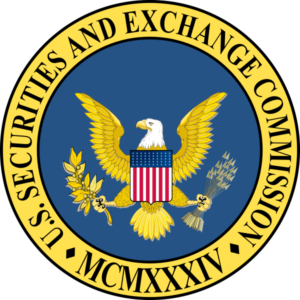SEC Expands “Accredited Investor” Definition
by Scott Edward Walker on August 30th, 2020
This past Wednesday, the Securities and Exchange Commission (SEC) adopted amendments expanding the definition of “accredited investor” to include individuals who hold certain professional certifications/licenses or have certain “credentials,” as determined by the SEC. As the SEC press release provides: “For the first time, individuals will be permitted to participate in our private capital markets not only based on their income or net worth, but also based on established, clear measures of financial sophistication.” The amendments also broaden the types of entities that qualify as accredited investors and add a new “spousal equivalent” concept, as discussed below. The amendments will take effect 60 days after publication in the Federal Register.
Background
Pursuant to applicable securities laws, a startup may not offer or sell its securities unless (i) the securities have been registered with the SEC and registered/qualified with applicable State securities commissions; or (ii) there is an exemption from registration. The most common exemption used by startups is the so-called “private placement” exemption under Section 4(2) of the Securities Act of 1933, as amended. As the term implies, a private placement is typically a private offering to a small number of investors; however, there are different rules depending upon whether the investors are accredited or non-accredited.
If a startup issues securities only to accredited investors, compliance is much simpler and cheaper because it can rely on SEC Rule 506 of Regulation D, which has two important advantages: first, Rule 506 preempts state-law registration requirements – which means, in general, that the startup merely must file a Form D notice with the applicable state commissioners (together with the SEC) and pay a filing fee; and second, there is no prescribed written disclosure requirements.
On the other hand, if one or more of the investors is not accredited, it opens a Pandora’s box of compliance and disclosure issues under both federal and state law. Yes, there are ways for a startup to offer and sell securities to non-accredited investors in compliance with applicable securities laws (e.g., via crowdfunding or SEC Rule 504); however, the cost, onerous requirements and negative signaling generally outweigh the benefit.
Current Definition of “Accredited Investor”
The current definition of an accredited investor under SEC Rule 501 includes eight different categories of investors, the most significant of which is an individual who has (i) a net worth (or joint net worth with his/her spouse) that exceeds $1 million at the time of the purchase, not including the value of his primary residence; or (ii) income exceeding $200,000 in each of the two most recent years (or joint income with a spouse exceeding $300,000 for those years) and a reasonable expectation of such income level in the current year. Here is the exact statutory language from the Federal Register:
230.501 Definitions and terms used in Regulation D.
As used in Regulation D (§230.500 et seq. of this chapter), the following terms shall have the meaning indicated:
(a) Accredited investor. Accredited investor shall mean any person who comes within any of the following categories, or who the issuer reasonably believes comes within any of the following categories, at the time of the sale of the securities to that person:
(1) Any bank as defined in section 3(a)(2) of the Act, or any savings and loan association or other institution as defined in section 3(a)(5)(A) of the Act whether acting in its individual or fiduciary capacity; any broker or dealer registered pursuant to section 15 of the Securities Exchange Act of 1934; any insurance company as defined in section 2(a)(13) of the Act; any investment company registered under the Investment Company Act of 1940 or a business development company as defined in section 2(a)(48) of that Act; any Small Business Investment Company licensed by the U.S. Small Business Administration under section 301(c) or (d) of the Small Business Investment Act of 1958; any plan established and maintained by a state, its political subdivisions, or any agency or instrumentality of a state or its political subdivisions, for the benefit of its employees, if such plan has total assets in excess of $5,000,000; any employee benefit plan within the meaning of the Employee Retirement Income Security Act of 1974 if the investment decision is made by a plan fiduciary, as defined in section 3(21) of such act, which is either a bank, savings and loan association, insurance company, or registered investment adviser, or if the employee benefit plan has total assets in excess of $5,000,000 or, if a self-directed plan, with investment decisions made solely by persons that are accredited investors;
(2) Any private business development company as defined in section 202(a)(22) of the Investment Advisers Act of 1940;
(3) Any organization described in section 501(c)(3) of the Internal Revenue Code, corporation, Massachusetts or similar business trust, or partnership, not formed for the specific purpose of acquiring the securities offered, with total assets in excess of $5,000,000;
(4) Any director, executive officer, or general partner of the issuer of the securities being offered or sold, or any director, executive officer, or general partner of a general partner of that issuer;
(5) Any natural person whose individual net worth, or joint net worth with that person’s spouse, exceeds $1,000,000.
(i) Except as provided in paragraph (a)(5)(ii) of this section, for purposes of calculating net worth under this paragraph (a)(5):
(A) The person’s primary residence shall not be included as an asset;
(B) Indebtedness that is secured by the person’s primary residence, up to the estimated fair market value of the primary residence at the time of the sale of securities, shall not be included as a liability (except that if the amount of such indebtedness outstanding at the time of sale of securities exceeds the amount outstanding 60 days before such time, other than as a result of the acquisition of the primary residence, the amount of such excess shall be included as a liability); and
(C) Indebtedness that is secured by the person’s primary residence in excess of the estimated fair market value of the primary residence at the time of the sale of securities shall be included as a liability;
(ii) Paragraph (a)(5)(i) of this section will not apply to any calculation of a person’s net worth made in connection with a purchase of securities in accordance with a right to purchase such securities, provided that:
(A) Such right was held by the person on July 20, 2010;
(B) The person qualified as an accredited investor on the basis of net worth at the time the person acquired such right; and
(C) The person held securities of the same issuer, other than such right, on July 20, 2010.
(6) Any natural person who had an individual income in excess of $200,000 in each of the two most recent years or joint income with that person’s spouse in excess of $300,000 in each of those years and has a reasonable expectation of reaching the same income level in the current year;
(7) Any trust, with total assets in excess of $5,000,000, not formed for the specific purpose of acquiring the securities offered, whose purchase is directed by a sophisticated person as described in §230.506(b)(2)(ii); and
(8) Any entity in which all of the equity owners are accredited investors.
Amendments to Definition of “Accredited Investor”
As noted above, the first significant amendment is to allow individuals to qualify as an accredited investor on the basis of holding certain professional certifications/licenses or having certain credentials, rather than meeting the net worth and/or income tests. The Final Rule expressly provides that: “In connection with the adoption of this amendment, in a separate order, we are designating the General Securities Representative license (Series 7), the Private Securities Offerings Representative license (Series 82), and the Licensed Investment Adviser Representative (Series 65) as the initial certifications, designations, or credentials designated by the Commission under Rule 501(a)(10).”
Moreover, it is important to note that the SEC did not increase the net worth or income levels, which had been rumored for years; however, the net worth and income criteria was amended to include a “spousal equivalent” (not just a “spouse”), which means a cohabitant occupying a relationship generally equivalent to that of a spouse. The amendments also clarified that that the securities being purchased by an investor relying on the joint net-worth test of Rule 501(a)(5) need not be purchased jointly.
Finally, the other significant amendment for startups is the expansion of the list of entities that may qualify as accredited investors to include (i) limited liability companies with at least $5 million in assets; (ii) family offices with at least $5 million in assets under management; and (ii) any entities with at least $5 million in investments.
Practical Tips for Startups
From a practical perspective, the foregoing amendments should not change the fundraising strategy for startups because, as I have previously discussed: “The goal for every startup seeking funding is to find superstar investors (“A” investors – as opposed to “B” or “C”) who can add substantial value via their domain expertise, their contacts and/or their experience.” Needless to say, an “A” investor will not have an issue with respect to qualifying as an accredited investor — whether the investor is an individual angel or a partner in a fund. Indeed, it’s the “C” investor that’s the potential problem — i.e., the friend, the uncle, the dentist, the neighbor — and ideally you do not want him or her as your investor in any event. That being said, sometimes startups have no choice, and that’s where these amendments could be helpful.
Noncompliance Issues
In conclusion (and just a friendly reminder to founders), you need to take compliance with applicable securities laws very seriously. As a corporate/securities lawyer for 20+ years, I have a completely different perspective than founders, and I have seen the “dark side” of non-compliance, including a right of rescission for the investors (i.e., the right to get their money back, plus interest), injunctive relief, fines and penalties, and possible criminal prosecution.
